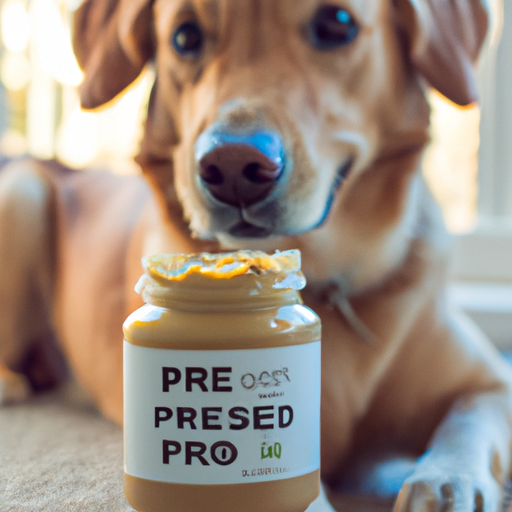As a compassionate and caring dog owner, it is your profound responsibility to ensure your furry friend is fed a balanced and healthy diet. One food item that has been a topic of discussion amongst dog lovers is peanut butter. But, have you ever wondered, what kind of peanut butter can dogs have?
Is Peanut Butter Safe for Dogs?
Yes, peanut butter is generally safe for dogs to consume. However, the type of peanut butter matters significantly. It should not contain harmful additives, especially xylitol, an artificial sweetener that can be toxic to dogs. Thus, when selecting a peanut butter brand for your canine friend, it’s essential to carefully read the ingredients list.
Key Factors to Consider:
- Xylitol-Free: Always choose a brand that does not list xylitol in its ingredients.
- Low Sodium: High sodium content isn’t good for dogs, so opt for low or no-salt peanut butter.
- No Added Sugar: Excessive sugar can lead to obesity and diabetes in dogs, so avoid brands with added sugars.
- No Added Oils: Some brands add unhealthy oils to their peanut butter. Always choose a brand with no added oils.
The Benefits of Peanut Butter for Dogs
Besides being a delicious treat that your dog will likely love, peanut butter can also offer some health benefits.
- Protein: Peanut butter is a good source of protein, which is essential for building and repairing body tissues in dogs.
- Healthy Fats: It contains healthy fats, which are beneficial for your dog’s skin and coat health.
- Vitamins: Peanut butter is rich in vitamins E and B, which support your dog’s immune system and help maintain their overall health.
- Minerals: It contains minerals such as magnesium, which promotes bone health in dogs.
Choosing the Right Peanut Butter for Dogs
When choosing the right peanut butter for your dog, it’s important to consider the following:
| Consideration | Why it Matters |
|---|---|
| Ingredients | Look for natural, limited ingredients with no harmful additives |
| Nutritional content | Opt for high protein, low sodium, and no added sugars |
| Brand reputation | Choose a trusted brand with good customer reviews |
It’s also a good idea to consult with your vet before introducing any new foods into your dog’s diet.
How to Feed Your Dog Peanut Butter
It’s crucial to remember that while peanut butter can be a healthy treat, it should be given in moderation due to its high fat and calorie content. Here are some tips on how to feed your dog peanut butter:
- Use it as a training reward: A small dollop of peanut butter can be an excellent reward for good behavior or mastering a new trick.
- Hide medication: If your dog is reluctant to take medication, hiding it in a spoonful of peanut butter can make it more appealing.
- Use it in dog toys: Smear a small amount of peanut butter inside a dog toy to keep your pet entertained for hours.
- Freeze it: Frozen peanut butter can be a refreshing treat on a hot day.
FAQs
Q: Can all dogs eat peanut butter?
While most dogs can eat peanut butter, some might be allergic. If you notice any adverse reactions such as itching, swelling, or difficulty breathing, contact your vet immediately.
Q: How often can I give my dog peanut butter?
Due to its high fat and calorie content, peanut butter should be considered a treat and given in moderation. A few times a week should be sufficient.
Q: Can dogs eat crunchy peanut butter?
Yes, dogs can eat crunchy peanut butter. However, smooth peanut butter is easier for them to eat and less of a choking hazard.
Q: Can peanut butter help dogs with anxiety?
Peanut butter can be a useful distraction tool for dogs with anxiety. However, it should not replace proper training and treatment methods for anxiety.
Being a dog owner requires a lot of love, patience, and understanding. When it comes to their diet, it’s always best to err on the side of caution. Remember, the peanut butter you choose for your dog should be low in sodium, without added sugars, oils, and most importantly, xylitol-free. With the right choice, your furry friend can enjoy this delicious treat safely and healthily.



